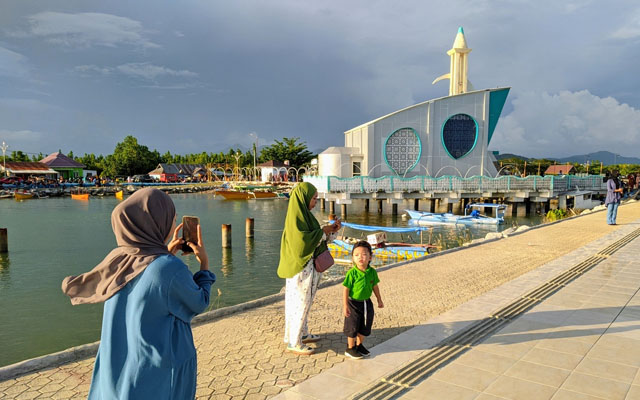Indonesia and Malaysia have emerged as the top two destinations globally for Muslim travellers in the newly-released Mastercard-CrescentRating Global Muslim Travel Index (GMTI) 2023.
Now in its eighth year, the annual report analyses data across nearly 140 countries to offer comprehensive insights into which destinations best meet the needs of the increasingly influential halal travel segment.

The halal travel demographic is a sizeable market segment globally. According to the GMTI, Muslim international arrivals hit 110 million in 2022 and are forecast to reach 140 million this year. By 2028, Muslim arrivals are expected to hit 230 million, with projected expenditure of US$225 billion. Currently, Asia leads the way for arrivals, with more than 31% of all travellers to this region identifying as Muslim.
Indonesia and Malaysia, which scored equally in the index this year, have long been popular destinations for Muslim tourists; Indonesia had previously topped the ranking in the 2019 report, while Malaysia has consistently been at the forefront of the GMTI since 2015. Singapore ranked 12th, making it only one of two countries (along with the UK) outside of the Organization of Islamic Cooperation to rank in the top 20.
The index assesses destinations across four key criteria: Access, Communications, Environment, and Services (ACES). South-east Asian destinations ranked among the top 10 on all four of these criteria, while in the aggregate, Indonesia and Malaysia both scored 73 (out of a possible 100), Singapore scored 64, Thailand achieved a score of 52, and the Philippines, 46.
The report also found that a number of global travel behaviours are impacting trends among Muslim travellers, with the demographic increasingly incorporating sustainability into their travel; opting for destinations and activities to improve their health and wellness; finding opportunities for immersive experiences and authenticity; incorporating personal development into their travel plans.
“While by no means a monolith, Muslim travellers are often looking for their travel plans to align with certain faith-oriented criteria, such as availability of halal foods, rooms for prayer, and encouraging communications and messaging from destinations,” said Fazal Bahardeen, founder & CEO, CrescentRating.
He continued: “Over the years we’ve conducted this research, we’ve consistently seen markets that prioritise these requirements perform well among Muslim travellers, and so it is our hope that the 2023 edition offers insights that will allow destinations to garner more understanding, more inclusivity, and ultimately, a closer relationship with this demographic.”
Safdar Khan, division president, South-east Asia, Mastercard, said: “With the travel industry already exceeding pre-pandemic levels of growth, the GMTI shows how faith-based travellers have evolved in their needs, and how these needs can be better met to create more resilient tourism offerings. Mastercard is confident that the GMTI will help to bolster the ongoing recovery and lay the foundations for future growth in the Muslim travel sector.”
The latest edition of GMTI offers four new tools that share insights and recommendations regarding this demographic: Muslim Travel Intent Tracker, Muslim Traveller Responsible Tourism Framework, GMTI Performance Matrix, and Muslim Women Friendly Destinations.
Download the GMTI 2023 full report here.




















